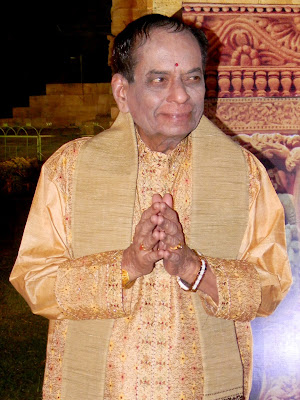And, just like that, the 30 days of November are over. The NaBloPoMo blogathon is ending today. While I do have the option of continuing writing every day – as I was doing on my Facebook page until NaBloPoMo started - I doubt if I will get back to it with the same level of regularity immediately.
Maybe because I diligently wrote each day’s blog post, trying to make each one count, with something of value, but now, I feel like a small break is necessary to recuperate from this loquacious onslaught on my own psyche, not to mention the one on people who’ve been reading my blogs 😉
To all those whose topic suggestions I took up and wrote about – cheers! You got me to say what I feel about things that matter to you although it may not have been exactly what you were looking for, in some cases 😉
To those who didn’t find their topics covered in this blogathon – take heart! I have your requests safely in a Word file, and will definitely write about them in the days to come, and send you the link, too, so you know I’ve kept my word 😊
I’m expecting a few things to happen from tomorrow –
· The chores I’ve neglected to devote time to writing will get their due attention
· The tidiness coefficient at home will inch upwards
· My laptop will finally find its way to the service centre to get its faulty hinge mechanism repaired
· The Sanskrit study will get greater attention, hopefully boosting my chances of doing well in the Sanskrita Bharati exam that’s due in February 2017
· The new nickname I’d earned at home – “Bloggie” – will gradually fade away
When I first invited myself to join Swathi Ram in this blogging initiative, I didn’t realize it would lead to such a huge learning experience.
I met many new bloggers, read what they wrote, had the opportunity for some wonderful insights from their writings
I picked up a few skills in commenting on others’ blogs
I learned how it feels when people you don’t know at all read and comment on your blog, and you realize you share the same perspectives….
Overall, it was an enriching experience that I wouldn’t have missed for anything.
Thank you Swathi, Priya, Rekha, Deepti, Shilpa, Varsha, Tara, Rajitha, Saritha, Ashwini, Ashwathi, Uma and all the others on this journey 😍😍😍
Thank you, dear readers – friends and family, commenters and non-commenters-but-silent-readers…
Maybe because I diligently wrote each day’s blog post, trying to make each one count, with something of value, but now, I feel like a small break is necessary to recuperate from this loquacious onslaught on my own psyche, not to mention the one on people who’ve been reading my blogs 😉
To all those whose topic suggestions I took up and wrote about – cheers! You got me to say what I feel about things that matter to you although it may not have been exactly what you were looking for, in some cases 😉
To those who didn’t find their topics covered in this blogathon – take heart! I have your requests safely in a Word file, and will definitely write about them in the days to come, and send you the link, too, so you know I’ve kept my word 😊
I’m expecting a few things to happen from tomorrow –
· The chores I’ve neglected to devote time to writing will get their due attention
· The tidiness coefficient at home will inch upwards
· My laptop will finally find its way to the service centre to get its faulty hinge mechanism repaired
· The Sanskrit study will get greater attention, hopefully boosting my chances of doing well in the Sanskrita Bharati exam that’s due in February 2017
· The new nickname I’d earned at home – “Bloggie” – will gradually fade away
When I first invited myself to join Swathi Ram in this blogging initiative, I didn’t realize it would lead to such a huge learning experience.
I met many new bloggers, read what they wrote, had the opportunity for some wonderful insights from their writings
I picked up a few skills in commenting on others’ blogs
I learned how it feels when people you don’t know at all read and comment on your blog, and you realize you share the same perspectives….
Overall, it was an enriching experience that I wouldn’t have missed for anything.
Thank you Swathi, Priya, Rekha, Deepti, Shilpa, Varsha, Tara, Rajitha, Saritha, Ashwini, Ashwathi, Uma and all the others on this journey 😍😍😍
Thank you, dear readers – friends and family, commenters and non-commenters-but-silent-readers…
I hope to get back in a few days time, rejuvenated, with some more of Anu’s Words..God Bless!

















